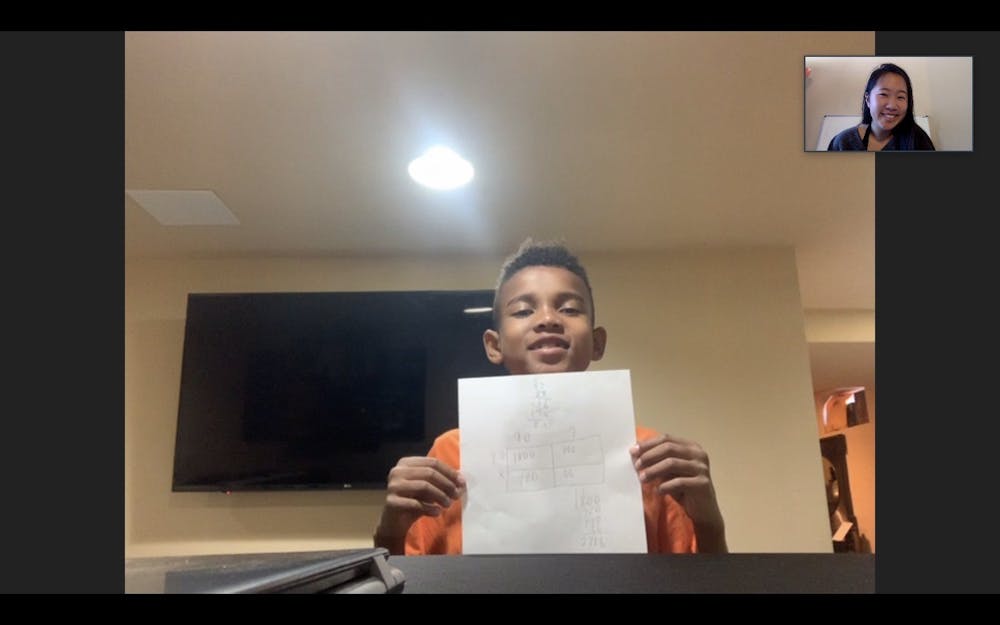As Hopkins transitioned into remote learning in mid-March, so did its student organizations. Community-service based groups in particular have found creative ways to stay active even though many of their members are no longer living in the Baltimore communities which the groups serve.
Sophomore Alanna Horowitz is a student volunteer for Thread, an organization which connects student volunteers and community-based volunteers with high-school students in Baltimore. Typically, volunteers support their student both academically, via tutoring, and emotionally, by engaging in their life and checking in on their well-being.
In an interview with The News-Letter, Horowitz likened the current situation to times when she has gone home on break. She is one of many volunteers assigned to a pair of twins, others of whom reside full-time in Baltimore. She noted that the distance makes it hard for her to support both students in the ways she can while living on campus.
“Normally what happens when I go home is, because I live the farthest, I relinquish responsibility of what goes on to people who are much closer to them because they usually need things like immediate food or immediate help with something and me being several hundred miles away isn't helpful,” Horowitz said.
Horowitz is also a brother of Alpha Phi Omega (APO), a national co-ed service fraternity. She explained that while APO was on campus, brothers were required to complete 20 hours of community service a semester. However, APO has adapted to remote learning by reducing their requirement to 10 hours. These hours can be completed over Zoom calls during which brothers make cards to send to residents of the Keswick Multi-Care Center, a home for the elderly.
While in Baltimore, Horowitz used to volunteer through APO at a preschool which serves students both with and without special needs. She has attempted to continue this service virtually, but attributed her continued service to her positive relationship with the teachers at the school. She is unsure if all APO brothers have continued their community service.
“I help her put her lesson plans online, and I record myself reading picture books that I then send to her. She puts those on her new lesson plan. I don't know if anyone else is still in contact with their community service partner. I’m always in contact with her,” Horowitz said.
Riya Gupta, another sophomore APO brother, has taken time during the pandemic to engage in new community service efforts. Gupta is now volunteering with the Baltimore Neighborhood Network, a group which extends support to elders or people living alone who may not have lots of other people reaching out to them. Volunteers are responsible for connecting with these people over the phone.
Gupta spoke about her motivation to volunteer remotely in an interview with The News-Letter.
“The call can be about anything. It can be about what they are doing today, what they are looking forward to. But it can also be about serious things like how they are feeling or if they are facing any loneliness or sickness problems, we’re there to listen to them,” Gupta said. “It's crazy how many people have stepped forward and become leaders through this situation. There are so many people doing so many amazing things and the least I can do is volunteer and help them.”
Sophomore Emma Sokolow is a Hebrew teacher at the Bolton Street Synagogue. During the normal school year, she teaches students every Sunday for three hours. Sokolow, along with other teachers and the program head, has now shifted to teaching her students through Zoom.
In an interview with The News-Letter, Sokolow noted that she is trying to extend virtual learning efforts to institutions outside of the Bolton Street Synagogue.
“I was hoping to take what I was working on in Baltimore and bring that back to New York, so I reached out to my synagogue to run a similar program with some of the children there,” she said. “It's really nice to have a moment all together, when everyone can feel really far apart, and in these ways we can really feel close together and have some sense of normalcy.”
The Hopkins Tutorial Project has also shifted to virtual learning during the pandemic. Typically, the Tutorial Project pairs a Hopkins student with an elementary-school student in Baltimore, and the students come to campus twice a week for tutoring. In an interview with The News-Letter, sophomore Deepa Ravindra shared that not all tutor-tutee pairs were able to make the shift to virtual learning. However, over 70 pairs have continued with tutoring remotely, making use of features such as Zoom whiteboards and online learning resources.
Ravindra noted that virtual learning has made some of her favorite aspects of the Tutorial Project harder to implement.
“One really amazing thing we do is something called Pen Pals, where a a tutee in the Monday-Wednesday program pairs with a penpal in the Tuesday-Thursday program, and they’ll be talking back and forth,” Ravindra said. “But now since that's a little harder to coordinate, if the tutee still wishes to be Pen Pals we have organizers or directors be their penpal. It’s very amazing that we still get to continue that kind of correspondence through this pandemic.”
Outside of Tutorial Project, Ravindra is involved in Camp Kesem, a national organization which has college students function as sleepaway-camp counselors at a camp for students whose parents currently have or have had cancer.
Ravindra explained that, outside of the camp, the organization provides year round support to their campers and families. Kesem has adapted to remote learning by holding Zoom events that allow the community to stay connected.
When it comes to the summer camp, Camp Kesem Nationals have announced it will be held virtually. Ravindra noted that current volunteers are working to make sure the switch to virtual camp is as smooth as possible.
“We’re going to compile a video to send to our families just so they know that we have their backs, and that Kesem is still very important to every single person involved,” she said. “And in terms of virtual camp, Nationals as well as our board at Hopkins are figuring out different activities and ways in which we can transition our real-life camp into a virtual camp.”





